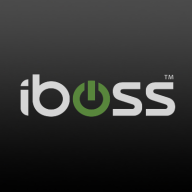


Microsoft Defender for Cloud Apps and Zscaler Zero Trust Exchange Platform are two leading solutions in the cloud security and zero trust markets. Each product has distinct strengths, with Microsoft Defender being more seamless in integration with the Microsoft ecosystem, while Zscaler offers robust VPN-like connectivity.
Features: Microsoft Defender for Cloud Apps offers extensive integration with Microsoft's ecosystem, ease of management, and detailed security posture views. It excels in seamless integration, threat detection, and comprehensive reporting. Zscaler Zero Trust Exchange Platform stands out with VPN-like connectivity, data monitoring, and inspection features. It's noted for ease of deployment in cloud environments and robust private access capabilities.
Room for Improvement: Microsoft Defender for Cloud Apps needs better integration with Apple products, streamlined reporting, and faster response to alerts for a lighter, more user-friendly experience. Zscaler Zero Trust Exchange Platform could enhance SCMP network layers, reduce latency, and refine licensing costs. Both products should optimize pricing models and improve integration across multiple ecosystems.
Ease of Deployment and Customer Service: Microsoft Defender for Cloud Apps is tailored for Microsoft-centric organizations with strong cloud integration but has support consistency issues, effective only with Premier tiers. Zscaler demonstrates high scalability and seamless cloud-on-premises deployment but faces latency challenges in larger environments. Customer service is satisfactory for both, although Microsoft's efficiency often requires escalation.
Pricing and ROI: Microsoft Defender for Cloud Apps, bundled with E3 and E5 licenses, offers good value for existing Microsoft users, despite higher costs for small enterprises. Its ROI is seen in integration and enhanced security features. Zscaler is perceived as expensive but offers competitive user-based pricing with ROI through secure connectivity and protective features, appealing to diverse IT setups.
| Product | Market Share (%) |
|---|---|
| Microsoft Defender for Cloud Apps | 8.8% |
| Zscaler Zero Trust Exchange Platform | 10.0% |
| iboss | 2.3% |
| Other | 78.9% |



| Company Size | Count |
|---|---|
| Small Business | 6 |
| Midsize Enterprise | 6 |
| Large Enterprise | 5 |
| Company Size | Count |
|---|---|
| Small Business | 13 |
| Midsize Enterprise | 10 |
| Large Enterprise | 19 |
| Company Size | Count |
|---|---|
| Small Business | 16 |
| Midsize Enterprise | 11 |
| Large Enterprise | 41 |
Iboss offers a comprehensive cloud-based security platform valued for its scalability and autonomous features, ensuring robust security with easy deployment and management capabilities.
Renowned for its robust security architecture, Iboss integrates seamlessly within diverse networks, delivering efficient granular filtering and advanced content categorization. Its single pane of glass console provides ease of management, allowing rapid scalability suitable for rapidly deploying environments. Operates in BYOD setups due to inline filtering without device installation. Integration with cloud-based applications enhances user control, and features like SASE, SSL inspection, and ChatGPT risk protection stand as highlights. Despite its strengths, users have pointed out areas for enhancement like direct navigation in reports, SSL decryption, and better cloud integration while having room to improve data loss prevention.
What are the most important features of Iboss?The usage of Iboss spans educational institutions, specifically K-12, to enforce internet policies, protect data, and support remote work environments. It provides web filtering and security frameworks to ensure safe browsing. Its platform-as-a-service model offers flexibility for both cloud-based and on-premises requirements, integrating seamlessly to deliver enhanced security features suitable for various deployment needs including zero trust, CASB, and network security for work-from-home setups.
Microsoft Defender for Cloud Apps is a comprehensive security solution that provides protection for cloud-based applications and services. It offers real-time threat detection and response, as well as advanced analytics and reporting capabilities. With Defender for Cloud Apps, organizations can ensure the security of their cloud environments and safeguard against cyber threats. Whether you're running SaaS applications, IaaS workloads, or PaaS services, Microsoft Defender for Cloud Apps can help you secure your cloud environment and protect your business from cyber threats.
Reviews from Real Users
Ram-Krish, Cloud Security & Governance at a financial services firm, says that Microsoft Defender for Cloud Apps "Integrates well and helps us in protecting sensitive information, but takes time to scan and apply the policies and cannot detect everything we need".
PeerSpot user, Senior Cloud & Security Consultant at a tech services, writes that Microsoft Defender for Cloud Apps "Great for monitoring user activity and protecting data while integrating well with other applications".
Simon Burgess,Infrastructure Engineer at SBITSC, states that Microsoft Defender for Cloud Apps is "A fluid, intelligent product for great visibility, centralized management, and increased uptime".
Zscaler Zero Trust Exchange enhances security with seamless cloud-based connectivity and VPN-less operation, offering integration with multiple identity providers and advanced security features, suitable for remote work environments.
Zscaler Zero Trust Exchange provides secure, adaptive connectivity without traditional VPNs, allowing organizations to replace legacy systems and bolster remote work security. The platform offers cloud-based protection, single sign-on, dynamic URL categorization, and scalable solutions. While advanced security features like DLP and threat protection enhance data protection, users may face issues with speed, connectivity, and some customization options. Integration challenges, latency due to multi-tenant hosting, reporting delays, and licensing costs require consideration. It supports secure internet access and private application security, ensuring traffic control and data compliance.
What are the key features of Zscaler Zero Trust Exchange?Zscaler Zero Trust Exchange is deployed across industries to secure remote access and enforce zero trust principles. Organizations in finance, healthcare, and technology sectors utilize it for secure internet access and visibility into cloud applications, enhancing performance and compliance in dynamic environments.
We monitor all Cloud Access Security Brokers (CASB) reviews to prevent fraudulent reviews and keep review quality high. We do not post reviews by company employees or direct competitors. We validate each review for authenticity via cross-reference with LinkedIn, and personal follow-up with the reviewer when necessary.